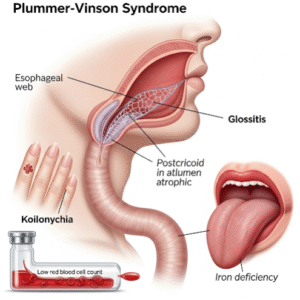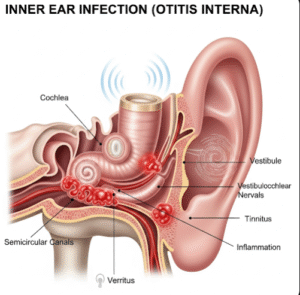Overview
Schizophrenia is a chronic and severe mental disorder that affects how a person thinks, feels, and behaves. It is characterized by distortions in thinking, perception, emotions, language, sense of self, and behavior. In Korea, patients with schizophrenia have access to comprehensive care, including psychiatric evaluation, antipsychotic medication, cognitive therapy, and community rehabilitation programs.
What is Schizophrenia?
Schizophrenia is a long-term psychiatric condition that causes people to interpret reality abnormally. It often includes symptoms like hallucinations, delusions, disorganized speech or behavior, and impairments in daily functioning.
It typically manifests in late adolescence or early adulthood and requires lifelong treatment, though many individuals lead fulfilling lives with proper management and support.
Symptoms
Symptoms of schizophrenia are generally divided into three categories:
Positive symptoms (added behaviors):
- Hallucinations (mostly auditory)
- Delusions (false beliefs)
- Disorganized speech or behavior
Negative symptoms (reduction of normal abilities):
- Lack of motivation
- Social withdrawal
- Blunted emotional expression
- Difficulty experiencing pleasure
Cognitive symptoms:
- Trouble focusing or paying attention
- Poor memory
- Impaired decision-making
Causes
- Genetics: Family history of schizophrenia increases risk
- Brain structure and chemistry: Imbalances in dopamine or glutamate, and structural brain abnormalities
- Prenatal factors: Malnutrition, infections, or stress during pregnancy
- Substance abuse: Cannabis and other drugs may trigger symptoms in predisposed individuals
- Psychosocial stressors: Traumatic experiences or chronic stress can influence onset
Risk Factors
- Family history of schizophrenia or other psychotic disorders
- Complications during birth or pregnancy
- Living in an urban environment
- Social isolation or trauma in early life
- Drug use, especially hallucinogens or marijuana in youth
Complications
- Suicidal thoughts or behavior
- Substance use disorders
- Depression and anxiety
- Inability to maintain employment or education
- Homelessness or incarceration (if untreated)
- Social stigma and discrimination
Prevention
There is no sure way to prevent schizophrenia, but early identification and intervention can reduce the severity and improve outcomes:
- Early treatment of prodromal (early warning) symptoms
- Avoiding substance abuse
- Family education and support
- Consistent follow-up with mental health professionals
- Stress management strategies
Treatment Options in Korea
South Korea provides comprehensive and modern care for schizophrenia, with services spanning psychiatry, pharmacology, therapy, and long-term support.
1. Diagnosis
- Conducted by psychiatrists using DSM-5 criteria
- Neuroimaging and lab tests may rule out other conditions
- Cognitive and psychological assessments
2. Pharmacological Treatment
- Second-generation (atypical) antipsychotics: Risperidone, Olanzapine, Quetiapine
- Long-acting injectable antipsychotics: For patients with compliance issues
- Adjunctive medications: Antidepressants, mood stabilizers, or anxiolytics when needed
3. Psychological and Social Therapies
- Cognitive Behavioral Therapy (CBT): For managing delusions and improving coping
- Cognitive Remediation Therapy: To improve attention, memory, and executive function
- Family Therapy: Involves education and support for families
- Social skills training and occupational therapy
4. Community Mental Health Services
- Day treatment programs
- Group counseling and peer support
- Community rehabilitation centers funded by Korean government
- Mobile mental health units for home-based care
5. Hospitalization
- Available in acute episodes or if there is risk of harm
- Psychiatric wards in top hospitals offer intensive care and stabilization
- Voluntary and involuntary admission allowed under Korean Mental Health Act













